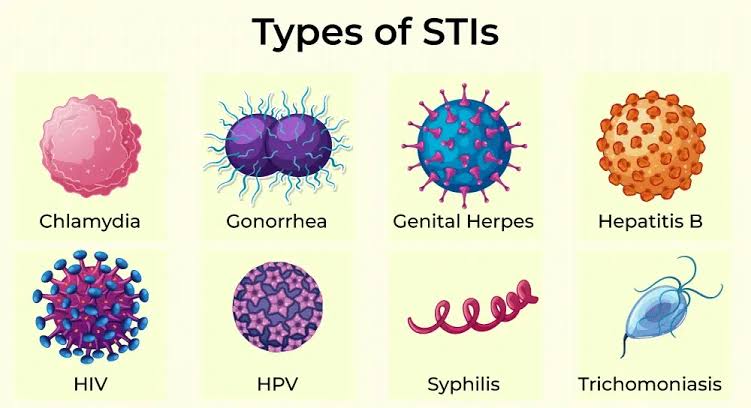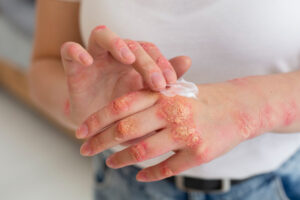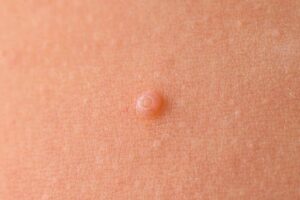
Sexually Transmitted Infections (STIs)
Sexually transmitted diseases (STDs) are caused by sexually transmitted infections (STIs). An STI may pass from person to person in blood, semen, or vaginal and other bodily fluids.

Bacterial STDs can be treated and cured with antibiotics. These include:
– Chlamydia
– Gonorrhea
– Syphilis
Viral STDs that can be managed with treatment include:
– Herpes
– Human Immunodeficiency Virus (HIV)
– Hepatitis B – Human Papillomavirus (HPV)
– genital warts
Signs and symptoms:
– Bumps, sores or warts on or near penis, vagina, mouth or anus
– Redness, swelling or severe itching on genital area
– Penile discharge
– Vaginal discharge (foul odor, that has different color or amount than usual)
– Burning sensation and painful or frequent urination
– Painful sex
– Skin rash
Management and Treatment:
– Antibiotics
– Antivirals
4 C’s in the Control of STI
– Compliance to treatment for acute and chronic infection.
– Counselling on preventive measures on STIs.
– Consistent and correct use of condom.
– Contact tracing to avoid STI re-infection.
STIs are preventable. Consult with a specialist/venereologist immediately if:
– You are sexually active and may have been exposed to a sexually transmitted infection.
– You have symptoms of a sexually transmitted infection (as detailed above).



